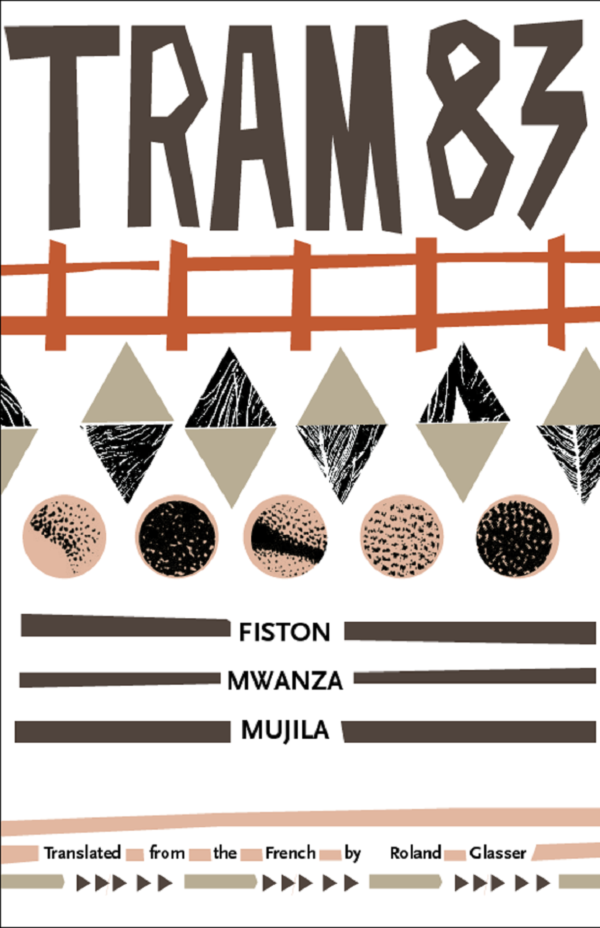
In August 2014, Congolese author Fiston Mwanza Mujila’s debut French-language novel, Tram 83, was released to rapturous acclaim in France. By 2015, it had been translated into English and the rave was even stronger. Mujila became a sensation. His novel, set in a nightclub and centered on two friends (“one a budding writer home from abroad, the other an ambitious racketeer”) earned praised for its restless prose, for being “colourfully exotic,” but mostly for its “improvisational jazz rhythms.” Landing reviews in major media outlets and translated into eight languages, Tram 83 was nominated for the 2016 Man Booker International Prize and won the 2015 Etisalat Prize for Literature as well as a French Voices Award. It seemed unanimous that Mujila had written a masterpiece of high art, one in which his philosophy of exploring the “geography of hunger” had been realised.
Until last week.
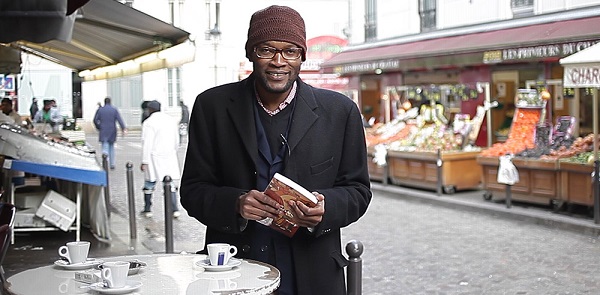
In an essay on his blog titled “Mujila Fiston Mwanza’s Tram 83: Requiem for the African Writer, and again, the Balance of Today’s Stories,” the US-based Nigerian critic Ikhide Ikheloa made a host of damning assertions about the novel’s style, structure and perceived politics: that the novel is poverty porn; that it is misogynist (“a frontal, violent attack on African women”); that it reads like “a failed movie script”; that Alain Mabanckou who wrote the introduction and knows French should have done the translation rather than leave it to a non-African; that the book simply does not deserve the praise accorded it. “In Tram 83,” he writes, “Africa’s men doze, wake up, order dog meat and grilled rats and fuck more women, pretend humans with fake buttocks and ‘melon breasts’ and return to sleep to continue with the misogyny and self-loathing. Africa has suffered…. VS Naipaul would approve.”
In the essay, Ikhide questions the endorsement bestowed on the novel by some writers and critics—Alain Mabanckou (“either Mabanckou and I read two different novels with the same title, or he has not been reading a lot of contemporary African literature”), Roland Glasser who had done the translation from French, and Ato Quayson who chaired the 2015 Etisalat Prize judging panel. Ikhide argues that the acclaim given the novel derives from its confirmation of the West’s stereotypes of Africa (“Tram 83 breaks no new ground. Let me just say I am yet to read a book written by an African that was more disrespectful to Africans than this book”).
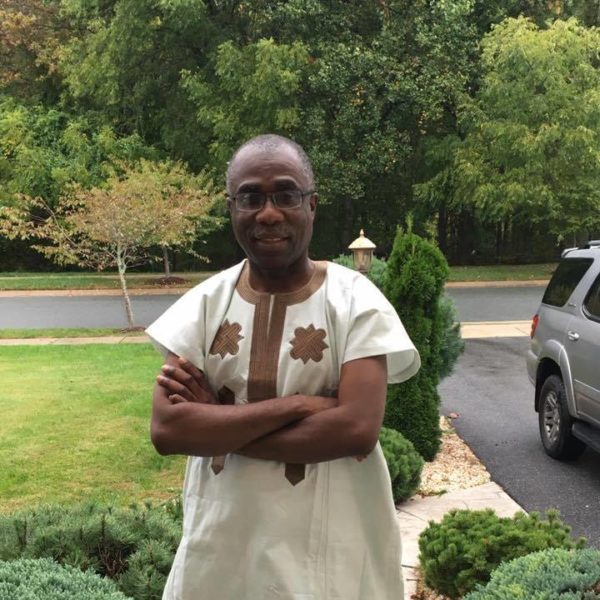
Ikhide’s essay was published on April 16. But it was in the late hours of April 22, when the South African novelist and 2017 Commonwealth Prize judge Zukiswa Wanner made a resigned post on Facebook, that it came to our notice. Zukiswa Wanner, a noted feminist, was one of the judges who had awarded Tram 83 the Etisalat Prize. Her disappointment with Ikhide’s essay, she states, lies with his failure to realize how accurate the novel is in capturing the misogynist reality of its setting. And she is also unhappy that Ikhide’s analysis overlooks that the two females on the three-judge 2015 Etisalat Prize panel are feminists based in Africa whose unanimous choice of the novel could not have been based on Western stereotypes of Africa, who being feminist could not have decided on a book promoting misogyny. Here is her post.
Poverty porn?
One day maybe we will sit down and have a conversation about how some readers on the continent actually like Fiston Mwanza Mujila’s Tram 83 for the way it depicts bars we are all familiar with.
We will talk about how, even as we were a tad uncomfortable (because we have been internalised to be Victorian about sex), some of us liked that the sex workers had some semblance of independence “do you have the time?”
One day we shall talk about how Pa Ikhide describes this work. And how in his piece he mentions the opinion of my friend, brother and 2015 Etisalat Chair Ato Quayson who he chooses to mention stays in Canada (while totally ignoring that the other two jurors Molara Wood and myself stay on the continent and our decision was unanimous when we selected Tram 83 as the winner).
One day, we shall question how it is that he dismisses the opinion of two African women staying in Africa while critiquing the one juror who stays in Canada from the US on an experience that the two people who stay on the continent relate with.
One day too, we shall talk about why this makes it so difficult to talk about African literatures from the continent and the diaspora because there are always some who think their narrative is superior.
Perhaps on that day too, we shall question why we people from developing nations feel we need our art acknowledged by some Westerner before it’s considered art.
But.
Perhaps today is not the day.
Sleep well my Africa.
The supporting reaction was strong. The conversation went to and fro about the subjects: poverty porn, misogyny, the role of both the West and Africa in determining what and how Africans wrote. “We need new critics,” commented Lizzy Attree, Director of the Caine Prize. The book’s translator, Roland Glasser, was not impressed with the essay’s premise and in his comment raised important perspectives on translating books:
What is this bizarre expectation that an African writer must absolutely be some kind of ambassador for the continent? A spin doctor? Can’t a guy (or gal) just write … about stuff? Why must they bear some kind of wider responsibility?
Sigh.
Where to start with such a confused piece? Ikhide R. Ikheloa must surely have got lost up his own fundament without the proverbial paddle! Or perhaps he just doesn’t know very much about literature?
He certainly knows fuck all about translation. If he did, he would never pose as crass a question as: “Why did Alain Mabanckou or any other Congolese scholar not do the translation? He speaks and writes French just as fluently.” The answer is of course that as excellent as Mr Mabanckou’s French is (and it is excellent), such excellence is of limited use when attempting to produce a version that attempts to recreate the original in ENGLISH… And as for “…the translation did little for me.”, should we assume that Ikheloa read both the French and English texts closely? Perhaps he did, in which case I would (genuinely) be interested to know why he found my translation so displeasing?
As for the accusation that “Tram 83” is basically a failed film script, I will only say that just because a book reads like it could be a film doesn’t mean that it was originally a film script! The “cinematic” style is hardly a recent literary invention… Perhaps Mr Ikheloa needs to read more widely. But at any rate, I can affirm that as far as I know (which is pretty far, since I am quite familiar with much of the precursing material ) “Tram 83” was never a film script, failed or otherwise.
And if a passion for the performing arts is somehow detrimental to the prose writer, then I guess we can strike Samuel Beckett from the canon forthwith!
“Mujila’s Africa is all stereotypes and caricature, filled with stick figures fucking mindlessly, defecating, wolfing down dog cutlets and grilled rats and drinking up a storm under the watchful eyes of a supercilious writer.” Riiiiiigght…. so basically pretty much how most of the world is to a greater or lesser extent. Why should Africa be somehow more morally salubrious than anywhere else? Come to London, mate, you’ll see stuff would make your eyes water.
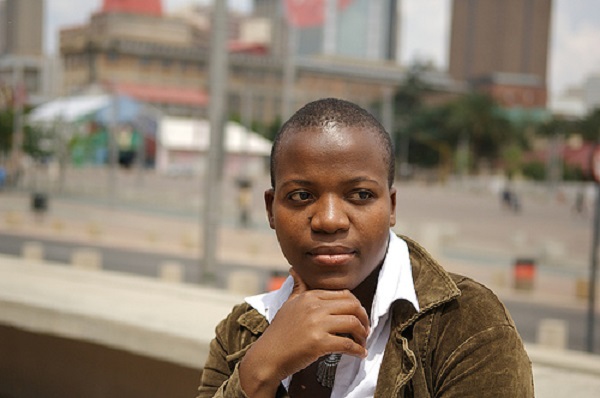
Zimbabwean writer and filmmaker, Tsitsi Dangarembga, author of Nervous Conditions and The Book of Not, made a distinction we thoroughly agree with: “I don’t think it’s the what, it’s the how, the gaze.” The Nommo Awards-shortlisted Ugandan writer, filmmaker and activist Dilman Dila was unimpressed with Ikhide’s perspective:
Well spoken. I too wondered a lot about things he said in that review, and I wish he had stuck to the writing itself. I don’t like it when people critic the writer instead of the work. It just is not professional….. But I am one of those who found it very hard to enjoy Tram 83, I thought he was writing the way people wrote novels in the 1800s. I couldn’t believe the world he created (no, I was not looking for real life representations of Africa for I never do that with any book. I just found the book world he created hard to believe in and that maybe because I couldn’t see the world clearly because of his writing style.) I am yet to read an actual reader’s review (not a critics review) of that book, and the one person I know who read all of it told me this about the book. “You have to be patient with it. I read it when I didn’t have a lot of distractions.” And maybe that’s why I never got into that book, which makes me wonder who else found time and patience in today’s world for it.
But before Zukiswa Wanner’s public response, Kenyan co-founder of Jalada Africa and 2017 Brunel International Poetry Prize shortlistee Richard Oduor Oduku had, on April 17, written a thick, brainy post in defence of Tram 83. Faulting Ikhide’s “anthropological” reading, he makes a case for Mujila’s work as something relatable.
I find myself disagreeing with Pa Ikhide ’s review of Fiston Mwanza Mujila’s Tram 83. Which is, of course, a good thing. I’m reading and I’m shaking my head. I disagree with the tendency to read all African novels, singularly, as anthropological documents. I also think Pa simply do not get the strange philosophies on which the book is based on. For readers like me, who feed a lot on dada and surrealism, who live on the tumult and dark comic of Béla Tarr’s movies, who love the psychologically distancing films of Lars von Trier, who read László, I was home in Tram 83. For anybody who reads French philosophers, and others like Nietzsche, it is a very grounded book. Let us not forget that the original is in French and language carries with it a whole world. Let’s also not forget Mujila’s madness as an artist. If Pa can hear him perform, a poem, on River Congo, then he’ll understand who this writer is. Pa is also complaining about sentences that go for two pages, but yours truly here, loves Krasznahorkai László. Pa should read ‘The Melancholy of Resistance’ to see how a sentence can go for 30 pages. There are so many schools of literary criticism, so many lenses, and yet we always seem stuck with one, singing poverty porn every day. And No Pa, I’m not reading “Chinua Achebe’s insightful essay, Today, the Balance of Stories (in the book of essays, Home and Exile) to all African writers who wish to reflect on how they portray Africa”, again hehehe and not his battle with Joseph Conrad again.
We seem to have this long list of instructions that a novel by an African should abide by. A few years ago, Helon Habila made an unlikely charge at ‘We Need New Names’ by NoViolet Bulawayo, that it was pushing an aesthetic of suffering – poverty porn. I couldn’t stop shaking my head. That was shocking. I’m reading Pa’s review and I can’t stop seeing the listing of what should be done, should not have been done, blab la bla. And Pa also brings the poverty porn argument to Tram 83, calls it “rancid poverty porn. Re-fried beans as literature.” Nonsense. Pa finds Tram 83 boring. Hehe. I agree with Taiye Selasi on this: “stop pigeonholing African writers.” Tram is THE book. Leave all those lists, walk in, immerse, and be transported. Most critics are becoming literalist fundamentalists. As for Pa’s criticism that the novel reads like a failed movie script, I’m just shaking my head. In the 21st century you are going to read novels that deliberately blur that boundary. Critics too need new eyes to see new things. If you read the extremes of László Krasznahorkai, Fiston Mujila’s is tame, but it is still elegant surrealism, beautiful madness – intelligent, strange, hypnotic, unconventional. Would the tag “poverty porn” be applied to similar novels written by non-Africans, set outside Africa? I think we are creating so many prisons for ourselves, and will cry when it traps us in for another 50 years. Pa risks missing the next Dambudzo Marechera when he appears on the scene, repeating a mistake of the past.
Actually that interview Sofia Samatar had with Fiston Mujila has all the answers. Jazz aside, note the influence of surrealism. Note the excesses of Congo. Note the language. Mujila says:
“I am a music lover, not just of jazz but also Congolese rumba. I dreamed of becoming a saxophonist when I was a child. That wasn’t able to happen, since there was no music school in my hometown and I couldn’t get hold of a saxophone. When I was nineteen or twenty I realized that literature or writing could play the role of a saxophone or bass clarinet. I was reading the surrealists a lot at the time. There is a connection between automatic writing and improvisation. Since then, I compose some of my texts like scores. I also make performances, often accompanied by jazzmen.
Music allowed me to explode the story in order to conform to the characters’ whims and excessiveness. I come from a country that exists only on paper. The Congo—by its very history, its everyday life—is an extraordinary, or shall we say paradoxical, country. There is no such thing as moderation there. We are always immoderate, excessive, exuberant, etc. Everything happens as if the world was going to end in forty-eight hours and we should therefore make the most of our remaining crumbs. Everything happens as if we belonged to another planet, with our own ways of thinking, of getting drunk, of dancing the waltz, and so on. I therefore needed jazz’s (incantatory) energy to define the heartbeats of a territory ravaged by all kinds of predation but whose people remain standing.
Tram 83 is irrigated by other rhythms, including those of the freight trains and the Congo river—one of the longest rivers in the world, and the deepest, second in discharge after the Amazon. The Congo river rises in the south and wanders through the whole country, before committing suicide, or hurling itself out the window, it depends, into the Atlantic ocean.”
You see?
However, Writivism founder Bwesigwe Bwa Mwesigire was convinced of the misogyny charge:
And the misogyny? I have been waiting for a long while now, for someone to respond to the charge that Tram 83 has too much misogyny for a single book.
…it is one of those things that are raised in silent whispers and never addressed, when it comes to such highly acclaimed books. Pa’s pointing out of the portrayal of women as ‘melons’ and things really said something we keep glossing over in discussing that book.
Richard replied with a comment about harmful impositions on creativity:
Really really important, but I keep on wondering about the limits of fiction, or any other art for that matter, or why it must be read as anthropological, especially for writings coming from Africa. I also understand that a critic brings in knowledge+taste+meaningful judgement and a book cannot just have one reading, one interpretation. What I don’t understand is the desire to impose our total order (in terms of how we view the world) on all creative productions. I think there is space for viewing the novel(s) as a world on its own, and when we draw parallels of similarity/difference with our world, there is space for not being to restrictive or not being prescriptive of what we would have preferred.
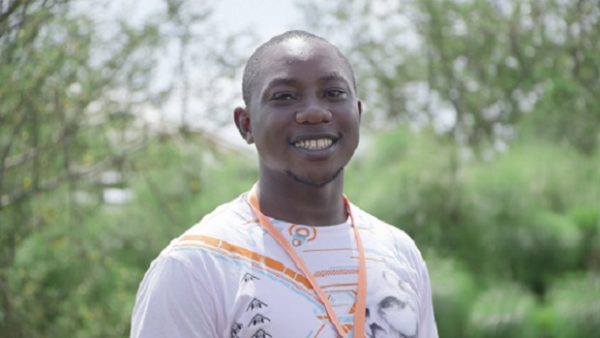
Jeanne Marie-Jackson, Assistant Professor of English at John Hopkins University, took on the charge of “Western gatekeeping” and insightfully expanded the focus to the complexity of publishing:
I think it’s important to be clear about the particular dynamics of “Western gatekeeping,” because it’s an increasingly complex institutional phenomenon. In much the way that the “little magazines” a decade or so back, in the States, grew up against the perceived moribundity and corporatization of mainstream cultural journalism, there has recently been a renaissance here of globally minded independent literary publishing. To be published here by Little, Brown (as Bulawayo was) is an absolutely different affair than to be published by Deep Vellum (as Mujila was). We are talking about the difference between a multifaceted corporate operation, and presses that are run as non-profiting labors of love by, often, one or two people who work other jobs to make ends meet. I’ve often thought that there should be a panel on this at Writivism or Ake or Open Book, so that at least the critical conversation doesn’t rely on a non-existent straw man.
The conversation came to a climax when Zukiswa Wanner joined the thread and made a clarification about Tram 83‘s perceived misogyny, arguing that what the book describes is an actual reality that must not be shied away from.
Bwesigye, thank you for bringing the discussion on the misogyny. Interestingly, I chatted with Yewande Omotoso about same when she was reviewing. And I think with Panashe Chigumadzi too when we talked about the book.
My take: walk into any bar akin to Tram 83 in Kampala, Nairobi, Johannesburg, Harare, Accra, Lusaka, Lilongwe, Dar to mention but a few African cities and see whether the women in Tram are not representative of sex workers in many of these cities.
In fact, I remember in Lagos someone whispering to me during a performance of the excerpt just how much Tram 83 could have been a bar in Lagos. And I am not sure Mwanza Mujila realized how representative he was when he wrote the book which is good because representing this and that narrative except the one true to the story should not be the job of any artist.
What is too often forgotten in these discussions is how two of the three jurors who selected the book as winner for Etisalat Prize are women who self-identify as feminists just as much as they self-identify as writers.
Tram 83 is largely set in a bar (like Broken Glass before it).
Are bars on this continent patriarchal places where women are seen and treated like pieces of meat? When you can answer that honestly, do. Then re-read Tram 83.
But Bwesigye was pushing for a nuanced conversation, arguing that the book’s endorsement by feminist writers was more about the good writing rather than the lack of unfavourable portrayal of women.
Thank you for this response, Zukiswa Wanner. What has intrigued me the most in this conversation is how there have been very few ‘feminist’ readings of the book. Not necessarily to accuse Mwanza Mujila of being misogynistic, after all, he who shows you the problem is not the problem, but a reading of the book that deals with the issue of misogyny. As you point out, feminists have endorsed the book, but the various reasons for endorsing this book have not been about its feminism, its exposure of the patriarchy of our societies, of the bars etc. The reasons have been about the prose, the dominant readings of the book have taken the routes Richard Oduor Oduku has taken, those interesting French and German and Eurocentric theories. In as far as Ikhide’s reading veers into Feminist approaches to fiction, in as far as he scrutinizes the portrayal of women in the book, he makes an important contribution to the conversation about the book. That all of us, including myself were only able to talk about the misogyny on display in the book away from the public arena, not even social media, says something about our feminist lenses. That said, thank God, Pa Ikhide has raised the issue. Would the same book have been read differently, especially as regards the misogyny of some characters and / or of the prose as some people would say, had the author been a woman? I know some people who keep asking what it means to read a book through feminist lenses, anyway.
Zukiswa mentioned how presupposing an author’s sex might affect their book’s reading, citing a personal example with her novel Men of the South.
Interesting that you say the last bit on whether he would have been accused of misogyny if he had been a woman. I remember someone telling me someone who was not aware I was a woman thought I was a male chauvinist pig on reading Men of the South…so there we are.
I have always talked about exposure of patriarchy in bar spaces as part of my endorsement of the book.
While this went down on his first post, Richard followed it up with another post on prescriptive tendencies in assessing literature from Africa.
It seems like the perfect novel, by an African, should be inert, nonpolitical, it should not be too much, it should be balanced, because readers of African novels are always looking how the sunny-side of Africa is presented. Is poverty in there? How much crime, drugs, war, prostitution, misogyny, patriarchy, feminism, name them. Are you pandering to Western audience interests? Who was your agent, your publisher? White people, right? Who are your friends? Have they influenced how you are presenting Africa to the world? Why is your imagination decadent? Your book should be banned. It is spreading immorality in Africa. Why is your language Christian? Your book must be anthropological. Don’t caricature us. We are good. It is a perfect world here. Africa is growing. Why are you dealing with old boring themes of poverty and strife? Poverty porn – we all agreed that novels from our 54+ countries should have none of that shit. Why are you only talking about middle class and wealthy people sensibilities? You are not capturing the ordinary lives of Africans. Do that in your next novel. That is why your current book is not selling. The prose – ah, make it short and clean. I’ll send you the UN Convention against long sentences (PDF). Why are your stories experimental?The African novelist is a continental spokesperson. Never forget that.
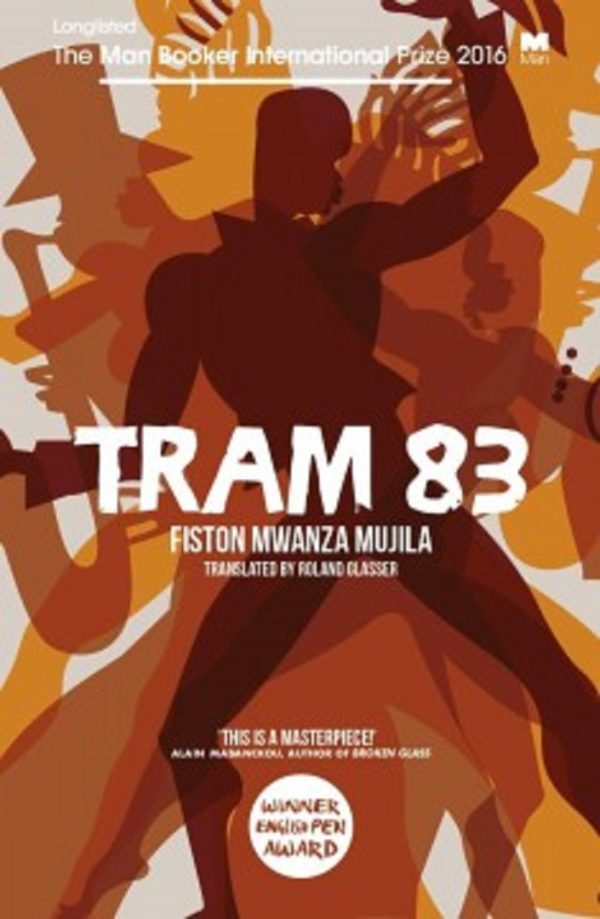
So there were are. This conversation raises a lot of questions. Does the depiction of misogyny mean that the one who depicts it the way it is has become misogynist? Does capturing the reality of poverty on a continent translate to poverty porn because the continent has become synonymous with poverty in global narratives? If not, where then is the line between honest depiction and poverty porn? Or is this one more example of how, as Ainehi Edoro argued in 2014, it is only Africans who worry about poverty porn? Is it about incomplete readings as Bwesigye implied—about the need to examine literature through more than a few niche ideological or practical lenses, through feminism and class politics and publishing complexities and the peculiarity of translation? And what is the role of class in determining what makes for poverty porn, the problem Zukiswa Wanner referred to in her post as “the ones who think their narrative is superior”? What should be said about a Middle-class Nigerian like Helon Habila reviewing a book about lower-class lives in Zimbabwe—a country that has historically endured more poverty than Nigeria that Habila might not relate to—and declaring it a bad representation of Africa? Is African policing of writing from Africa becoming too much? Or is it simply that, in the throes of a work’s excellent style, we often overlook the details and manner of a work’s substance?
***
Read Ikhide Ikheloa’s essay, “Mujila Fiston Mwanza’s Tram 83: Requiem for the African Writer, and again, the Balance of Today’s Stories.” Meanwhile, he has written a response to the reaction, and we will be bringing that soon.


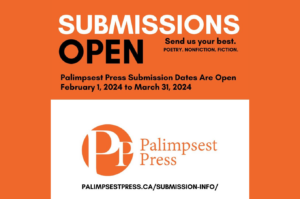



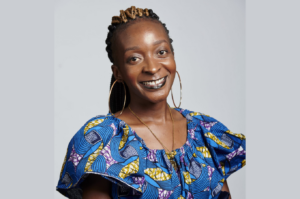
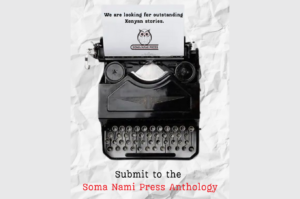

Congo-Kinshasa: overdonderende jazz - Papieren Wereldreis June 13, 2018 05:53
[…] van de Nigeriaanse criticus Ikhide Ikheloa. Er ontstond een controverse die goed is samengevat op Brittle Paper, een boekenblog over moderne Afrikaanse literatuur. Het kwam erop neer dat Tram 83 volgens […]